8 Most Popular Destinations of 2025 for Americans Moving Abroad
As more Americans embrace the idea of living and working abroad, the search for the perfect international destination is on the rise. Whether driven by the cost of living, lifestyle changes, remote work freedom, or a desire to explore new cultures, 2025 is shaping up to be a record year for international relocations.
At Schumacher Cargo Logistics, we’ve helped thousands of families and individuals make their move overseas with ease. Drawing on decades of experience and the latest moving trends, here are the Top 10 most popular destinations for Americans moving abroad in 2025, and why they’re attracting U.S. citizens now more than ever.
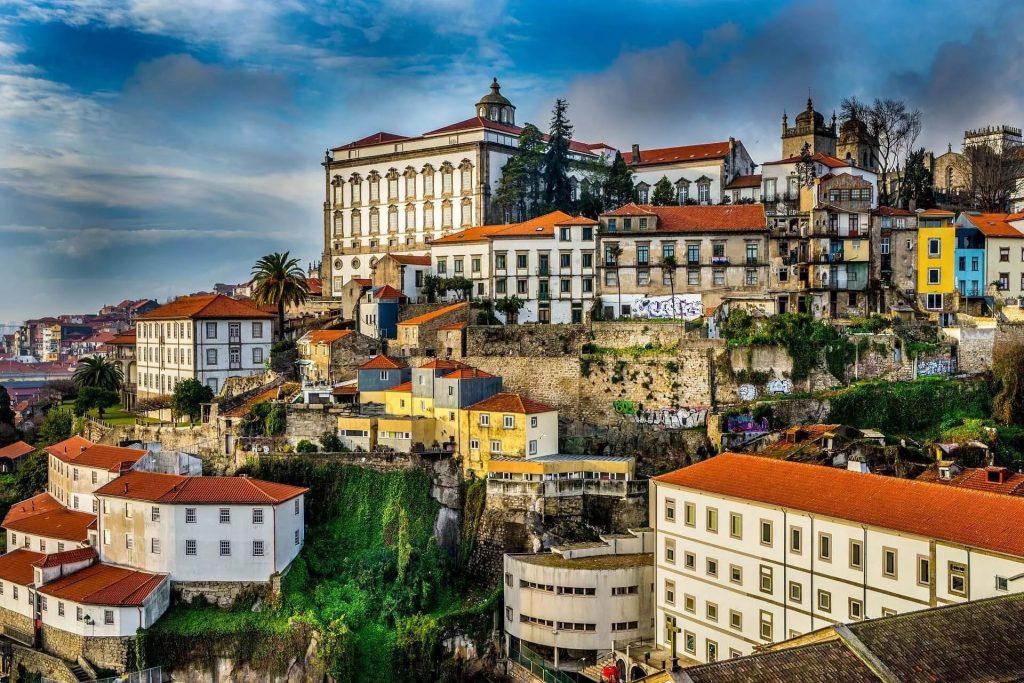
1. Portugal
Why it’s trending: Affordable, safe, and incredibly welcoming to expats.
- Cost of living: 30–50% lower than in major U.S. cities.
- Safety: One of the safest countries in Europe.
- Culture: Rich in history, coastal beauty, and a laid-back lifestyle.
- Ease of moving: U.S. citizens can apply for long-term residency through the D7 visa.
Pro tip: Cities like Lisbon and Porto are hot spots, but don’t overlook coastal gems like the Algarve.

2. Spain
Why it’s trending: Vibrant culture, great healthcare, and plenty of sunshine.
- Cost of living: Significantly cheaper than most U.S. cities.
- Safety: High safety rankings, especially in smaller towns.
- Culture: Tapas, flamenco, festivals, and centuries-old architecture.
- Ease of moving: The Non-Lucrative Visa is a popular choice for retirees and remote workers.
Pro tip: Southern Spain (Andalusia) offers beautiful weather and lower costs.

3. Costa Rica
Why it’s trending: Eco-friendly living with a relaxed, tropical lifestyle.
- Cost of living: Moderate; affordable outside the main tourist zones.
- Safety: Stable and peaceful, with a well-established healthcare system.
- Culture: “Pura Vida” mindset emphasizes joy, nature, and simplicity.
- Ease of moving: Residency options available for retirees, investors, and remote workers.
Pro tip: The Central Valley offers cooler temps and a lower cost of living than coastal areas.

4. Italy
Why it’s trending: Historic charm, delicious food, and scenic countryside.
- Cost of living: More affordable than many assume—especially in rural and southern areas.
- Safety: Generally very safe with excellent public healthcare.
- Culture: Renaissance art, ancient ruins, and food that speaks for itself.
- Ease of moving: Elective residency visas are available for those with sufficient income.
Pro tip: Smaller towns like Lecce and Lucca offer a slower pace with authentic Italian living.
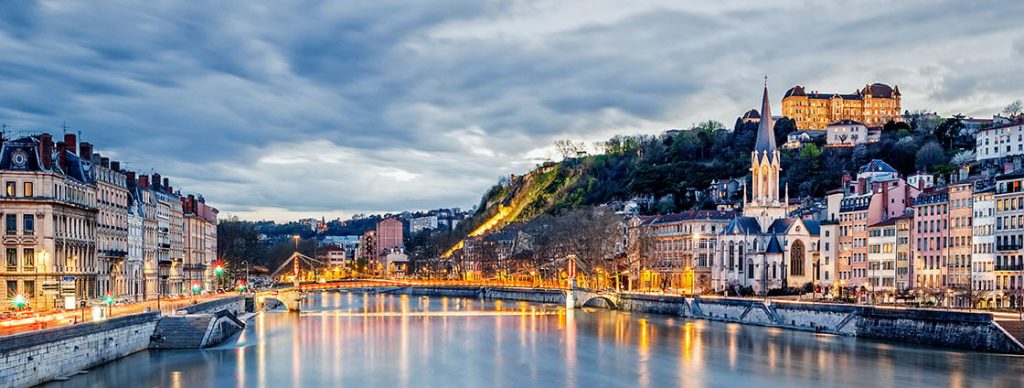
5. France
Why it’s trending: Rich culture, quality of life, and diverse regions to explore.
- Cost of living: Comparable to the U.S. in cities, but much lower in rural regions.
- Safety: High safety and healthcare standards.
- Culture: Art, fashion, wine, and world-renowned cuisine.
- Ease of moving: Long-stay visitor visas available for Americans.
Pro tip: Consider regions like Provence or Brittany for a more relaxed and affordable experience.
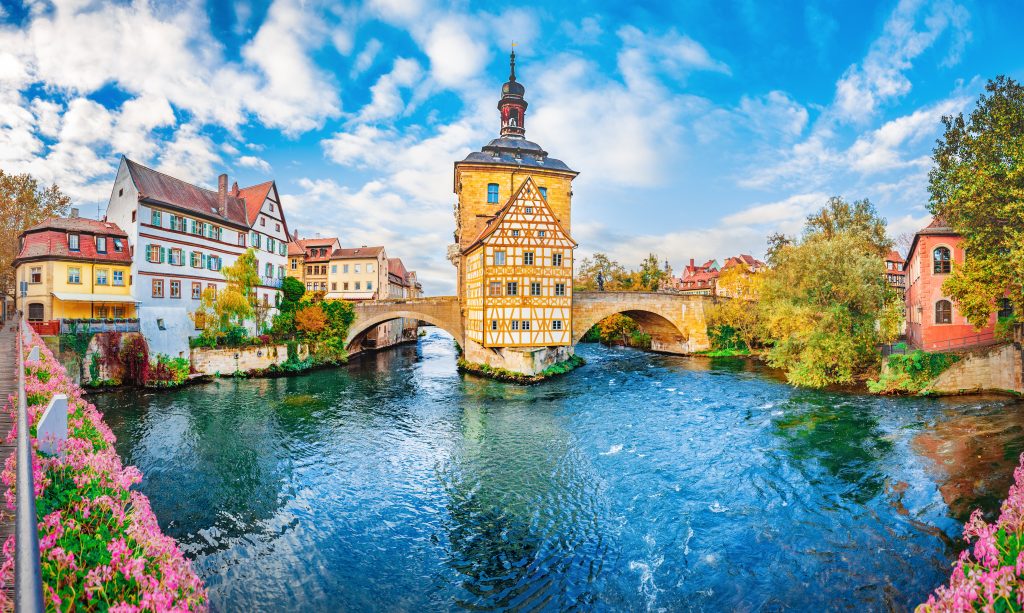
6. Germany
Why it’s trending: Strong economy, great infrastructure, and clean cities.
- Cost of living: Fair, especially outside of major cities like Munich.
- Safety: Very safe and well-organized, with excellent public services.
- Culture: Castles, Christmas markets, and deep-rooted traditions.
- Ease of moving: U.S. citizens can apply for residence permits for work or study.
Pro tip: Smaller cities like Heidelberg or Leipzig are expat-friendly and less expensive.
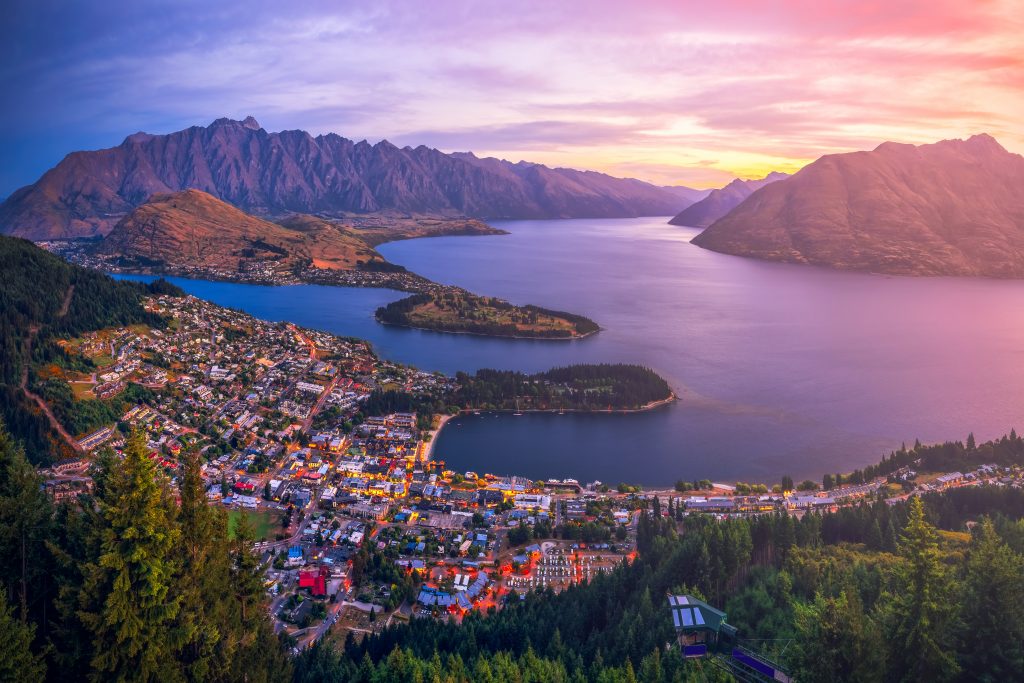
7. New Zealand
Why it’s trending: Epic landscapes, friendly locals, and a focus on work-life balance.
- Cost of living: Higher than average, but offset by quality of life.
- Safety: Extremely safe, with low crime rates.
- Culture: Outdoor adventure, Maori heritage, and tight-knit communities.
- Ease of moving: Points-based immigration system; working holiday and skilled visas available.
Pro tip: Many Americans are drawn to Wellington and Christchurch for livability and affordability.

8. Japan
Why it’s trending: Modern meets ancient in one of the world’s most unique cultures.
- Cost of living: Urban centers are expensive, but smaller towns can be budget-friendly.
- Safety: One of the safest countries globally.
- Culture: Deep traditions, unmatched etiquette, and cutting-edge innovation.
- Ease of moving: English teachers and remote workers find favorable visa paths.
Pro tip: Japan’s “Specified Skilled Worker” visa is expanding options for foreign professionals.
Thinking About Moving Abroad? Let Schumacher Cargo Logistics Help.
Whether you’re relocating for adventure, retirement, remote work, or a fresh start, choosing the right destination is only the first step. Schumacher Cargo Logistics has been the trusted partner for international moves since 1977. We specialize in full-service international relocations, including:
- Door-to-door international moving
- Overseas vehicle shipping
- Customs documentation and clearance
- Secure packing and storage
- Personalized relocation consultations
Get a free moving quote today and let us help you take the stress out of moving abroad. With our decades of experience and global network, you’ll be in expert hands from start to finish.
Ready to Start Your International Move? Get a Free Quote Today!
Western Europe offers a mix of rich history, modern conveniences, and diverse cultures, making it a fantastic destination for Americans looking to move abroad. While each country has its own immigration processes, some are known for their straightforward paths to residency and citizenship. Here are five of the easiest Western European countries for Americans to move to, along with key details to help you start your journey.
1. Portugal

Portugal is a standout destination for its affordable cost of living, sunny weather, and welcoming atmosphere. Its immigration policies make it particularly accessible for retirees, remote workers, and investors.
Why It’s Easy:
- D7 Visa: Tailored for retirees and remote workers with proof of passive income or freelance earnings.
- Golden Visa Program: Grants residency through investments in real estate or businesses.
- Path to Citizenship: After five years of legal residency, you can apply for Portuguese citizenship.
Key Requirements:
- Proof of income or financial stability.
- Valid health insurance.
- No criminal record.
Fun Fact: Once a resident, you’ll enjoy visa-free travel across the Schengen Zone, comprising 26 European countries.
2. Spain

Spain offers a vibrant culture, warm climate, and an excellent quality of life. It’s particularly attractive to retirees and those who can afford a slower-paced Mediterranean lifestyle.
Why It’s Easy:
- Non-Lucrative Visa: Designed for non-working residents who can show sufficient income or savings to support themselves.
- Golden Visa Program: For those investing €500,000 or more in Spanish property.
- Long-Term Residency: After five years, you can apply for permanent residency, and citizenship after ten years.
Key Requirements:
- Proof of financial independence (around €2,400/month for individuals).
- Comprehensive private health insurance.
- Clean criminal record.
Fun Fact: Spain is home to one of the largest American expat communities in Europe, making it easy to find familiar faces and support networks.
3. Germany
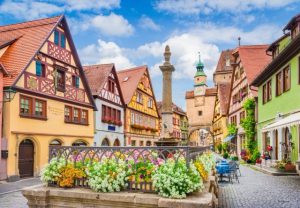
Germany combines economic stability, world-class infrastructure, and a high standard of living, making it an excellent choice for skilled workers, students, and entrepreneurs.
Why It’s Easy:
- Job Seeker Visa: Allows qualified professionals to move to Germany and search for work for up to six months.
- EU Blue Card: For high-skilled workers with job offers, granting fast-track residency options.
- Student Pathways: International students can often transition to work and residency permits after graduation.
Key Requirements:
- Proof of qualifications or relevant work experience.
- A job offer or sufficient funds for the Job Seeker Visa.
- Health insurance coverage.
Fun Fact: English is widely spoken in Germany, especially in cities, making it easier for newcomers to adapt.
4. France

France offers a mix of cosmopolitan cities, picturesque countryside, and an emphasis on quality of life. Its immigration pathways are accessible to retirees, entrepreneurs, and professionals.
Why It’s Easy:
- Long-Stay Visitor Visa: Ideal for retirees or self-sufficient individuals who can show proof of income.
- Tech Visa: For entrepreneurs and skilled tech workers who plan to work in France’s thriving tech ecosystem.
- Path to Citizenship: After five years of residency, or two years if you graduate from a French university, you can apply for citizenship.
Key Requirements:
- Proof of financial means.
- Comprehensive health insurance.
- Knowledge of French language and culture (important for citizenship).
Fun Fact: France’s public healthcare system is consistently ranked among the best in the world and is accessible to residents.
5. Ireland

Ireland’s friendly locals, shared language, and growing economy make it a top choice for Americans. Whether you’re drawn to its scenic landscapes or its bustling tech hubs, Ireland has a straightforward immigration process.
Why It’s Easy:
- Work Visa for Skilled Workers: Ireland offers visas for professionals in high-demand fields, including tech and healthcare.
- Stamp 0 Visa: A temporary residency option for retirees and self-funded individuals.
- Irish Ancestors: If you have Irish grandparents, you can qualify for citizenship through descent.
Key Requirements:
- Proof of income or job offer (depending on the visa type).
- Valid health insurance.
- Evidence of accommodation in Ireland.
Fun Fact: Ireland allows dual citizenship, so you can keep your U.S. passport if you become an Irish citizen.
General Tips for Moving to Western Europe
- Learn the Language: While English is widely spoken in many Western European countries, learning the local language can make integration easier and improve your visa prospects.
- Understand Tax Implications: Research tax treaties between the U.S. and your destination to avoid double taxation.
- Health Insurance: Most countries require proof of health insurance, either through private providers or enrollment in their national systems.
- Seek Expert Advice: Immigration laws can be complex and subject to change. Consulting with a lawyer or immigration expert is highly recommended.
Ready to make the move? Let Schumacher Cargo help. Get a Free Quote today.
Moving to Ireland offers a rich history, stunning landscapes, and a welcoming community. Whether you’re moving for work, study, or simply a change of scenery, here are the key things to know before making Ireland your new home. Schumacher Cargo Logistics is here to help with every step of your move, and we’re committed to making your transition as smooth as possible.
Cost of Living in Ireland
Ireland is known for its high standard of living, but it comes with a price. Major cities like Dublin, Cork, and Galway have a higher cost of living than smaller towns and rural areas. Living in Dublin is comparable to residing in a major U.S. city like New York or San Francisco, where housing costs are high. Smaller Irish cities like Cork or Galway are more similar in cost to U.S. cities such as Austin, Texas, or Portland, Oregon, where living expenses are still significant but generally lower than in larger metropolitan areas. Here are some essential expenses to budget for:
- Housing: Rents in Dublin can be high, particularly in popular neighborhoods. Outside Dublin, costs are more reasonable, but housing can still take up a significant portion of your budget.
- Groceries and Dining: While groceries in Ireland are moderately priced, dining out can be expensive, especially in cities.
- Utilities and Healthcare: Utilities, including electricity, gas, and internet, can add up. Healthcare in Ireland is generally good, but it’s essential to have health insurance as non-residents may qualify for different benefits than citizens.
Finding a Job in Ireland
Ireland’s tech and finance sectors are booming, similar to Silicon Valley or financial hubs like New York. Just as cities like San Francisco and Seattle have plenty of tech opportunities, Dublin hosts many tech companies, making it ideal for professionals in these fields. However, networking is even more essential in Ireland’s smaller, close-knit business community. Many U.S. companies have set up their European headquarters in Ireland, which may simplify job searches. To improve your chances, consider the following:
- Networking: Ireland has a small, closely connected business community. Networking is crucial for landing opportunities.
- Visa Requirements: You’ll need a visa to work legally. The Critical Skills Employment Permit is popular among skilled professionals and can be a pathway to residency.
- Resources: Websites like Jobs.ie, and IrishJobs.ie are helpful for job seekers. Some expats also use recruitment agencies to streamline their job search.
Finding a Place to Live
Finding housing in Ireland, particularly in Dublin, can be competitive and feel similar to finding a place in New York City or Boston, where properties are rented within days and prices are steep. Smaller Irish towns can feel more like renting in mid-sized U.S. cities like Denver, where demand exists, but it’s not as fiercely competitive as the major metro areas. Here’s what to consider:
- Popular Locations: If you’re working in Dublin, neighborhoods like Ranelagh, Rathmines, and Ballsbridge are well-located but come at a premium. Cork and Galway are more affordable.
- Rental Market: Renting is a common choice for expats. Websites like Daft.ie and Myhome.ie, list available properties, but competition can be fierce, so be prepared to act quickly.
- Utilities and Furnishings: Many rental properties in Ireland come furnished. Utilities are often not included in rent, so check your lease to avoid surprises.
Immigration and Residency Requirements
Think of Ireland’s immigration system as similar to the U.S. process of obtaining a green card or work visa. U.S. citizens often need an employment offer or specialized skills to stay long-term, just as international applicants to the U.S. do. Ireland’s Critical Skills Employment Permit is comparable to the H-1B visa in the U.S., intended for highly skilled workers in industries with labor shortages. Immigration is a crucial aspect of moving to Ireland. As a U.S. citizen, you’ll need to follow these steps:
- Short-Term Stays: U.S. citizens can stay in Ireland for up to 90 days without a visa.
- Long-Term Residency: For those planning to work, study, or settle permanently, you must obtain the appropriate visa or permit. Common options include work permits and student visas.
- Residence Permits: After securing a job, you may apply for a residence permit. Long-term residents can eventually apply for citizenship if they meet the requirements.
Language and Communication
English is the primary language in Ireland, making communication straightforward for U.S. expats. Irish (Gaeilge) is the second official language, and you’ll see it on signs, in media, and taught in schools. While you don’t need to learn Irish to get by, it’s a great way to immerse yourself in local culture.
Education in Ireland
Ireland has an excellent education system, making it a great choice for families moving with children or young adults seeking higher education. Many families choose public education, but private schools are available for those who prefer them. Higher education in Ireland is similar to U.S. state universities, where international students are welcome, though they may pay higher fees than local students. Key considerations include:
- Primary and Secondary Schools: Ireland offers both public and private schooling options. Public schools are generally free, though certain materials may have fees.
- Higher Education: Ireland is home to prestigious universities, including Trinity College Dublin and University College Dublin. As an international student, tuition fees may apply, but the quality of education is exceptional.
- Applying for Schools: School applications can vary, especially if you’re considering a private or international school, so start early.
Embracing Irish Culture
Ireland’s culture is unique, blending modern and traditional influences. Here’s what you can look forward to:
- Friendly Locals: The Irish are known for their hospitality. Don’t be surprised to have people strike up conversations in pubs, on public transport, or while you’re out exploring.
- Festivals and Traditions: From St. Patrick’s Day to local music festivals, Ireland has a vibrant social scene. Participating in these events is a great way to meet new people.
- Pubs and Music: The pub culture is integral to Irish social life. Pubs are places for music, storytelling, and gathering with friends, and they’re a wonderful way to immerse yourself in local traditions.
Moving to Ireland from the U.S.
Now that you know the essentials, are you ready to make the move?
Moving to Ireland can be the adventure of a lifetime. Schumacher Cargo Logistics is here to make the process seamless. From packing and shipping to final delivery, we’re experts in international moves to Ireland and can handle every detail.
Get a Quote Today!
Let us help you take the first step toward your new life in Ireland. Contact Schumacher Cargo Logistics at 1-800-599-0190 or fill out the free quote form.
Thinking about moving to Australia? With its stunning beaches, laid-back lifestyle, and unique wildlife, it’s no wonder that many expats call Australia home. Choosing a place to live that best suits your lifestyle is key to making the most of life Down Under. Before diving into the best places to live, here’s one quick tip: the best time to relocate to Australia is between late autumn and early winter (April to July). Moving during these months means cooler temperatures for easier acclimatization and less crowding during the holiday season, making it simpler to settle in.
Let’s explore Australia’s top cities and regions for new residents, covering who they’re best suited for, the typical weather, and what each area has to offer for anyone moving from the U.S.
Sydney, New South Wales
- Best For: Tech & Finance professionals, beach lovers, and families
- Weather: Mild winters (50-60°F) and warm summers (70-80°F)
Highlights:
Sydney’s iconic beaches and balanced home and work lifestyle make it a top choice for expats. With major industries in finance, tech, and creative arts, Sydney offers career-driven opportunities. That, along with a laid-back coastal lifestyle, makes moving to Sydney ideal for families and professionals alike. Though the job market in Sydney can be competitive, so it’s best to go with a job already. On weekends, residents flock to Bondi and Coogee Beaches, and the city offers plenty of adventure with outdoor activities like the Bondi to Coogee coastal walk and nearby Blue Mountains hikes. Housing is pricier than in other cities, so it’s best suited to those with a solid income or corporate job.
For budget planning, Sydney’s cost of living is comparable to large U.S. cities like New York or San Francisco, especially for housing near the coast. However, the rewards of city life with breathtaking views and sunny beaches make it well worth it for many.
Melbourne, Victoria
- Best For: Artists, students, and coffee lovers
- Weather: Cool winters (40-50°F) and mild summers (70-80°F)
Highlights:
Melbourne, also considered Australia’s cultural capital, is packed with art galleries, music festivals, and a world-renowned café scene. Melbourne’s scene most appeals to young professionals, international students, and families. Neighborhoods like Fitzroy boast famous street art, while events like the Melbourne International Comedy Festival keep the city buzzing with activity year-round.
Melbourne is also home to high-ranking universities like the University of Melbourne and RMIT, making it ideal for students and young professionals. Its healthcare facilities are some of the best in Australia, offering peace of mind for families and individuals moving here. Melbourne’s four-seasons-in-a-day weather is unpredictable, but temperatures are pleasant year-round.
Brisbane, Queensland
- Best For: Warm weather lovers, families, and retirees
- Weather: Hot, humid summers (80-90°F) and mild winters (60-70°F)
Highlights:
Brisbane’s subtropical climate and riverside parks offer endless outdoor activities, from paddleboarding on the Brisbane River to exploring Moreton Island. Moving to Brisbane appeals to families and retirees who enjoy spending time outdoors, being active, and year-round sunshine.
The city also maintains a small-town vibe, making it easier for new residents to build a local network and integrate into the community. Housing is more affordable than in Sydney or Melbourne, a plus for families seeking more space. Brisbane’s warm climate may be intense for some, but sunny skies and relaxed living make it an attractive option for tropical weather lovers.
Perth, Western Australia
- Best For: Nature enthusiasts, beachgoers, and people seeking a relaxed lifestyle
- Weather: Warm, dry summers (80-90°F) and mild winters (50-60°F)
Highlights:
Isolated yet beautiful, Perth is a hidden gem for people who love the outdoors and want a slower pace of life. Surrounded by national parks, pristine beaches, and friendly locals, Perth is great for work-life balance and offers ample recreational options. Locals enjoy snorkeling at Rottnest Island and exploring the Pinnacles Desert, making it ideal for adventure seekers and ocean lovers.
Compared to Sydney and Melbourne, Perth’s cost of living is more affordable, especially for housing. This affordability, paired with a Mediterranean climate, appeals to beach enthusiasts and expats looking for a more relaxed setting.
Adelaide, South Australia
- Best For: Wine lovers, food lovers, and retirees
- Weather: Mild winters (40-50°F) and warm, dry summers (70-85°F)
Highlights:
Adelaide’s charm lies in its famous wine regions, food markets, and picturesque beaches. This mid-sized city is known for its slower pace and affordable living, making it popular with retirees and foodies alike. The nearby Barossa Valley and McLaren Vale wine regions offer world-class wines and make for fantastic day trips.
Adelaide’s Mediterranean climate is ideal for year-round comfort, while its friendly community atmosphere is perfect for those seeking a peaceful, balanced lifestyle. The healthcare and education facilities are excellent and affordable, making it especially appealing for retirees and families.
Hobart, Tasmania
- Best For: Nature lovers, retirees, and remote workers
- Weather: Cool winters (40-50°F) and mild summers (60-70°F)
Highlights:
Hobart, Tasmania’s capital, is ideal for those who want a cozy community vibe with access to nature. Surrounded by pristine wilderness, Hobart is a fantastic base for outdoor enthusiasts, with scenic destinations like Cradle Mountain and the Overland Track nearby. Lower housing costs and a cooler climate make it perfect for retirees and remote workers.
Hobart’s four distinct seasons feel familiar to Americans from northern states, with mild winters and cooler summers, making it easy to adjust. The natural beauty and relaxed pace appeal to those looking for a quieter lifestyle with endless outdoor adventure.
Gold Coast, Queensland
- Best For: Surfers, beach lovers, and young families
- Weather: Warm year-round with hot, humid summers (80-90°F) and mild winters (60-70°F)
Highlights:
The Gold Coast, known for it’s beaches, surf culture and social scene, attracts water sports enthusiasts and young families. It’s ideal for those who love a warm, beach-centered lifestyle with plenty of outdoor options.
While the Gold Coast has a thriving tourism industry, it also has a close-knit community feel, making it easy to settle in. Families will find affordable housing and a vibrant neighborhood culture with community events, markets, and coastal activities that make this area feel like a permanent vacation spot.
Canberra, Australian Capital Territory
- Best For: Public servants, families, and history buffs
- Weather: Cold winters (30-50°F) and warm summers (70-85°F)
Highlights:
Australia’s capital, Canberra, is quieter than other major cities but offers excellent job opportunities in government and academia. Families are drawn to its safe, family-friendly environment with top-tier schools and healthcare. Canberra is also rich in history and culture, with landmarks like the Australian War Memorial and Parliament House.
Canberra offers a unique blend of outdoor and intellectual pursuits. Its cooler winters with occasional frosts and warm, dry summers create a balanced climate, making Canberra an appealing, well-rounded place to settle.
Moving to Australia
Moving from the U.S. to Australia is an adventure, and choosing the right city for your vibe is your first step to making it feel like home. Whether you’re drawn to Sydney’s bustling harbor, Melbourne’s cultural flair, or Hobart’s scenic tranquility, Australia has a spot that suits every lifestyle.

Choosing the right international movers is crucial if you’re planning a move abroad from the US. Schumacher Cargo Logistics, a trusted name in international relocation services, is here to help you make the process smoother and stress-free. In this guide, we’ll walk you through essential steps to prepare your belongings and answer common questions that come with moving internationally.
Step 1: Choose the Right International Movers
The first and most important step in your journey is selecting reliable international movers. Look for a company with experience in international shipping, a strong reputation, and comprehensive services that include packing, shipping, customs clearance, and delivery. At Schumacher Cargo, we offer tailored services to suit your moving needs. Whether shipping a few boxes or an entire household, we can help you find the best option for your move.
Pro Tip: Read reviews, ask for quotes, and make sure your movers are licensed and insured for international moves. It’s worth choosing a company that has experience with your destination country.
Step 2: Declutter and Downsize
One of the most challenging parts of an international move is choosing what to take and leave behind. International shipping can be costly, so downsizing will save you money and make the process more manageable.
What should you declutter?
- Bulky items: It may be more cost-effective to buy new furniture abroad.
- Seasonal items: Consider the climate of your destination. Will you need winter coats in a tropical country?
- Old electronics: Voltage differences may render your appliances unusable in another country.
Step 3: Organize Your Belongings
Once you’ve downsized, it’s time to get organized. Label your belongings clearly, and separate items based on what you’ll need immediately and what can wait until later. This is also a great time to document everything for customs purposes. Schumacher Cargo will help you itemize your shipment for a smooth customs process.
Key considerations:
- Fragile items: Pack these with care or leave them to professional movers specializing in packing for international moves.
- Essential documents: Keep important paperwork like passports, visas, medical records, and shipping documents in an easily accessible place.
Step 4: Research Customs Regulations
Each country has its own customs rules, and navigating them can be tricky without the right guidance. Your international movers, like Schumacher Cargo, will assist with paperwork and help you understand what items are restricted or prohibited in your destination country.
Common questions about customs:
- What items are restricted? Most countries restrict plants, certain foods, and hazardous materials.
- Will I need to pay duties? Duties or taxes may apply depending on what you’re shipping and where you’re moving.
Schumacher Cargo’s team is well-versed in the customs processes of various countries and will help ensure your shipment complies with all regulations.
Step 5: Prepare for Delays
International moves are complex, and unexpected delays can happen. Prepare for the possibility that your shipment may take longer than expected to arrive, especially with global shipping disruptions. Pack an essentials bag with clothing, toiletries, and important documents that will keep you comfortable while you wait for the rest of your belongings.
Pro Tip: Always keep a backup of your important documents in case anything gets lost in transit.
Step 6: Protect Your Belongings with Insurance
While Schumacher Cargo offers reliable and secure shipping, international travel can be unpredictable. Insurance is a must to cover any potential damages or losses. Talk to your moving company about comprehensive coverage options that will give you peace of mind throughout the journey.
Types of insurance to consider:
- Full coverage insurance: This covers the full value of your belongings if they are lost or damaged.
- Total loss insurance: This covers only in cases of total loss, such as a shipping container being lost at sea.
Step 7: Plan Your Arrival
It’s not just about preparing for the move itself but also being ready when you arrive at your new destination. If your belongings will take several weeks to arrive, make sure you have temporary accommodations lined up and know how to receive your shipment when it arrives.
Questions to ask yourself:
- Do I need temporary housing?
- Where will my shipment be delivered, and what documents will I need?
- Will I need to buy or rent temporary furniture or appliances while I wait?
Make Your International Move a Success
Preparing for an international move can feel like a huge task, but with careful planning and the right international movers, you can make it a smooth experience. Schumacher Cargo Logistics is here to help every step of the way, from packing to delivery. With over 40 years of experience in international shipping, our team will take care of the logistics so that you can concentrate on the exciting new chapter ahead.
Ready to start your move? Contact Schumacher Cargo today at 1-800-599-0190 or fill out our online form for a free quote and personalized moving plan.















